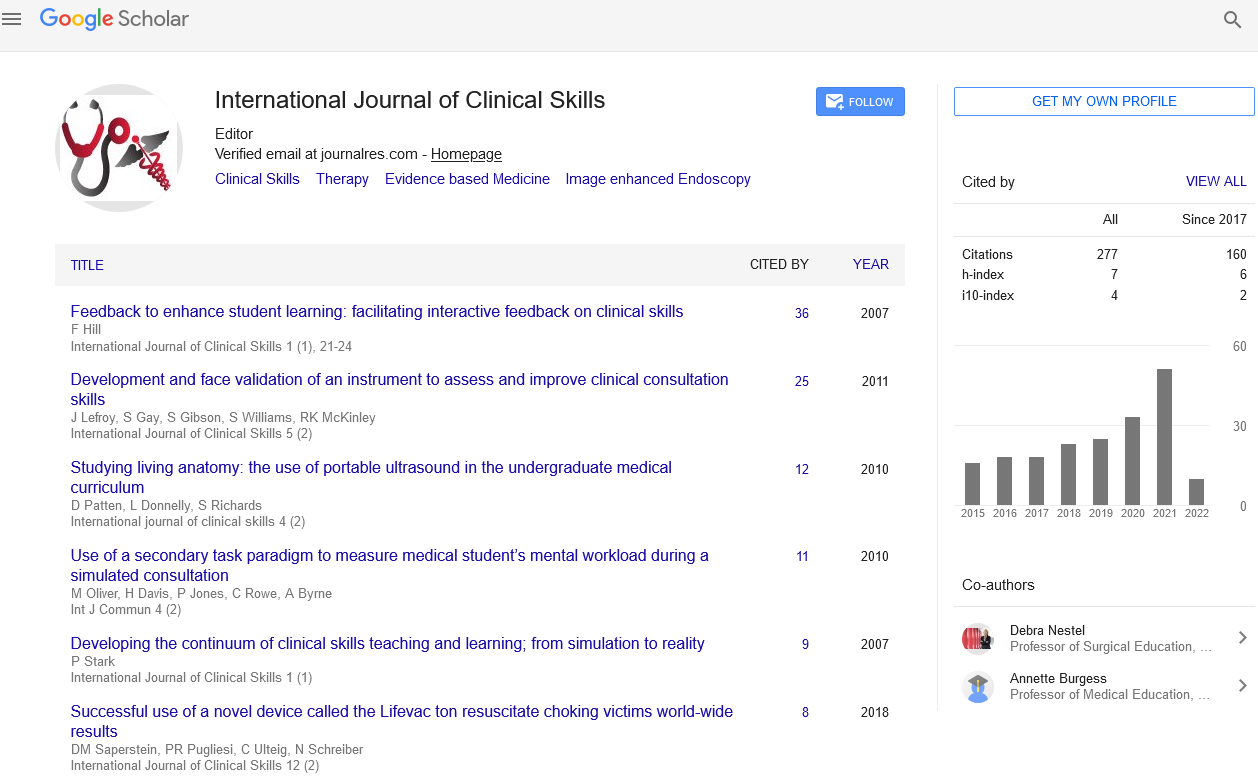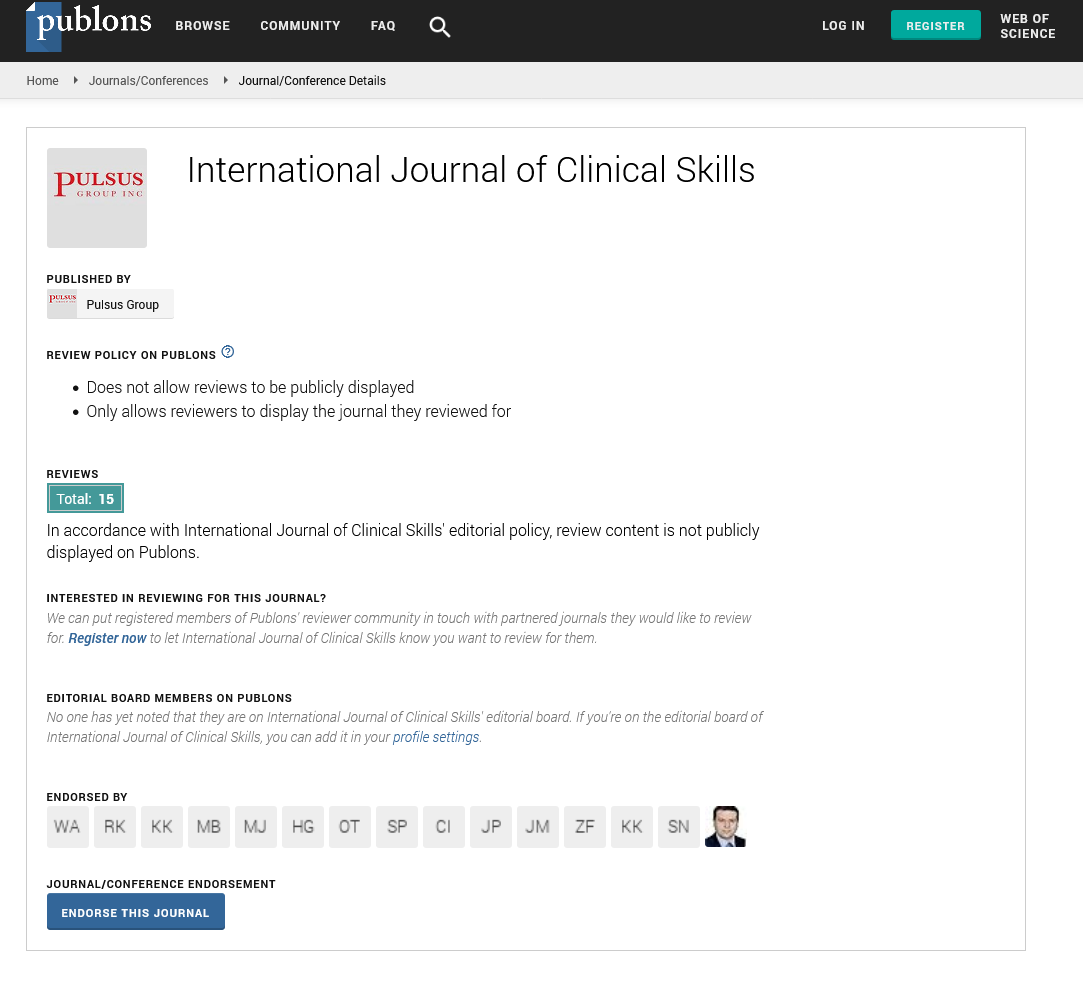Aim & Scope
International Journal of Clinical Skills has a vital role in promoting practice-changing findings and analyzing the implications for contemporary medicine. In Practical, Clinical skills refer to “combination of physical techniques and safety principles that are designed to allow an individual to protect (oneself) from physical injury and escape from a potentially aggressive situation”.
Clinical Skills addresses all aspects facing by clinical practitioners today. International Journal of Clinical Skills renders exciting and innovative ways of learning about clinical skills. Links between the theoretical knowledge and practice are more commanding. The International Journal of Clinical Skills (IJOCS) is a peer reviewed International Journal, which will promote the sharing of information and evidence based research, as well as bringing together the clinical community.
The Journals aims to flourish and to maintain the standards in research and practice, provide platform and opportunity to present evidence based medicine and analytical assessment of research and probably it is much in deed for students, teachers and health care professionals to enhance the patient care.
International Journal of Clinical Skills (PISSN: 1753-0431 & EISSN: 1753-044X) is a scientific, peer-reviewed, academic journal promotes rigorous research that makes a significant contribution in advancing knowledge and provides important platform for the researcher and scholars to exchange their knowledge on current advancement in clinical skills, clinical trials, therapy, evidence based medicine, clinical trials, image enhanced endoscopy etc.
Knows about the skills: This includes knowledge about the skill, including underlying theory behind the practice. In relation to procedural skills it involves knowledge of indications, contraindications, potential complications and alternate strategies or approaches if the skill is unsuccessful or unable to be performed.
Topics covered but not limited to:
|
· Evidence-based treatment guidelines |
· Manual Handling Equipment |
|
· Clinical Education |
· Handling Risk assessment |
|
· Unmet clinical needs |
· Medical device regulations |
|
· Primary care |
· Medical equipment management |
|
· Clinical practice center |
· Clinical communication |
|
· Clinical Examination |
· Skill laboratory training |
|
· Nursing skills |
· Physicians practice |
|
· Radiology |
· Sensitive exam skills |
|
· Practical hands-on application |
· E-learning resource |
|
· NHS Medical education |
· Prescribing Safety Assessment |
|
· Patient Safety |
· Translational Medicine |
|
· Hospital Safety Programs |
· Unmet Clinical Need |
|
· Radiation Safety |
· Therapeutic Action |
|
· Safe Medical Devices Act (SMDA) |
· Neurological Examination of the limbs |
Surgical Skills: These include proficiency in handling of instruments, suturing skills, haemostasis as well as the dissection of tissue. Surgery should be conducted safely by using the simplest and the safest way to achieve the operative goals.
Surgical Oncology: Also regarded as cancer surgery An operation or technique to remove a tumour and potentially some adjacent tissue is known as cancer surgery. It is the earliest form of cancer treatment, and it continues to be effective in the treatment of a variety of cancers today. A "surgical oncologist" is a specialist who specialises in cancer surgery.
Radiology: Radiology, often known as diagnostic imaging, is a group of tests that take images of the body's various parts. Many of these tests allow doctors to look into the human body. This picture can be obtained using a variety of imaging tests, including X-ray, MRI, ultrasound, CT scan, and PET scan.
Kindly visit the author guideline page for more information and ensure that you accept all the Terms and Condition of the Journal as the article been submitted to the Journal.

